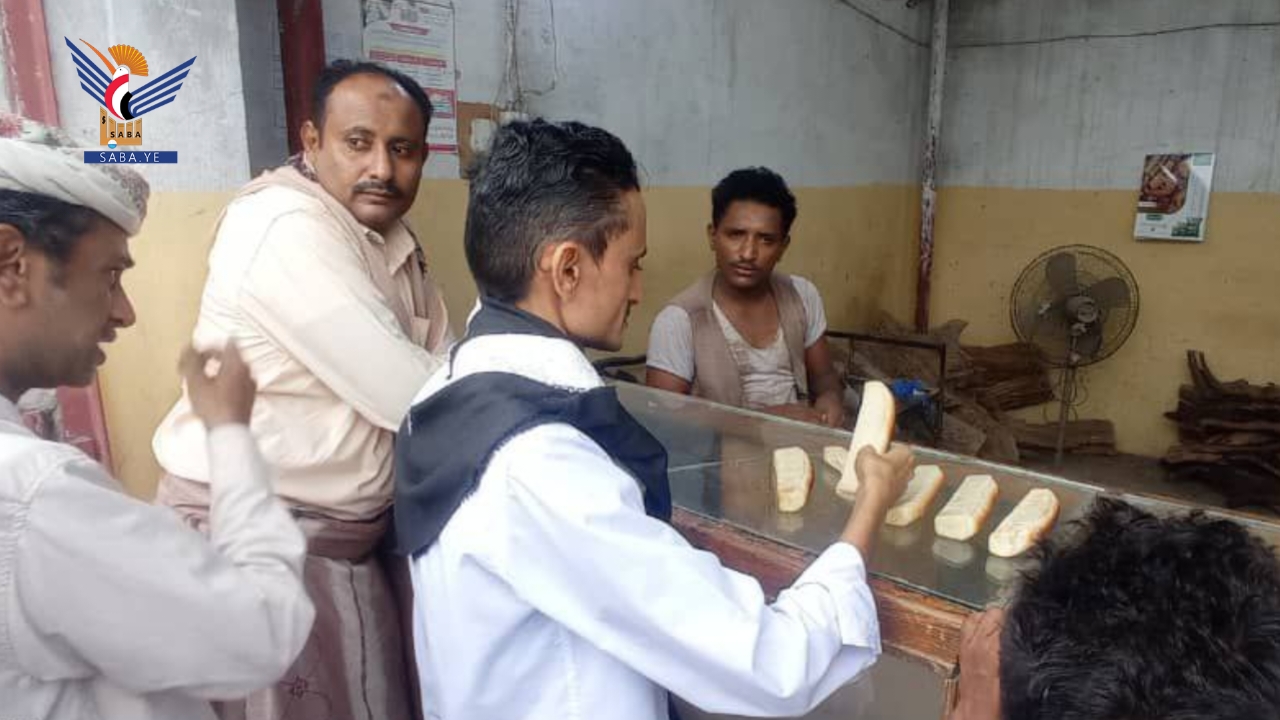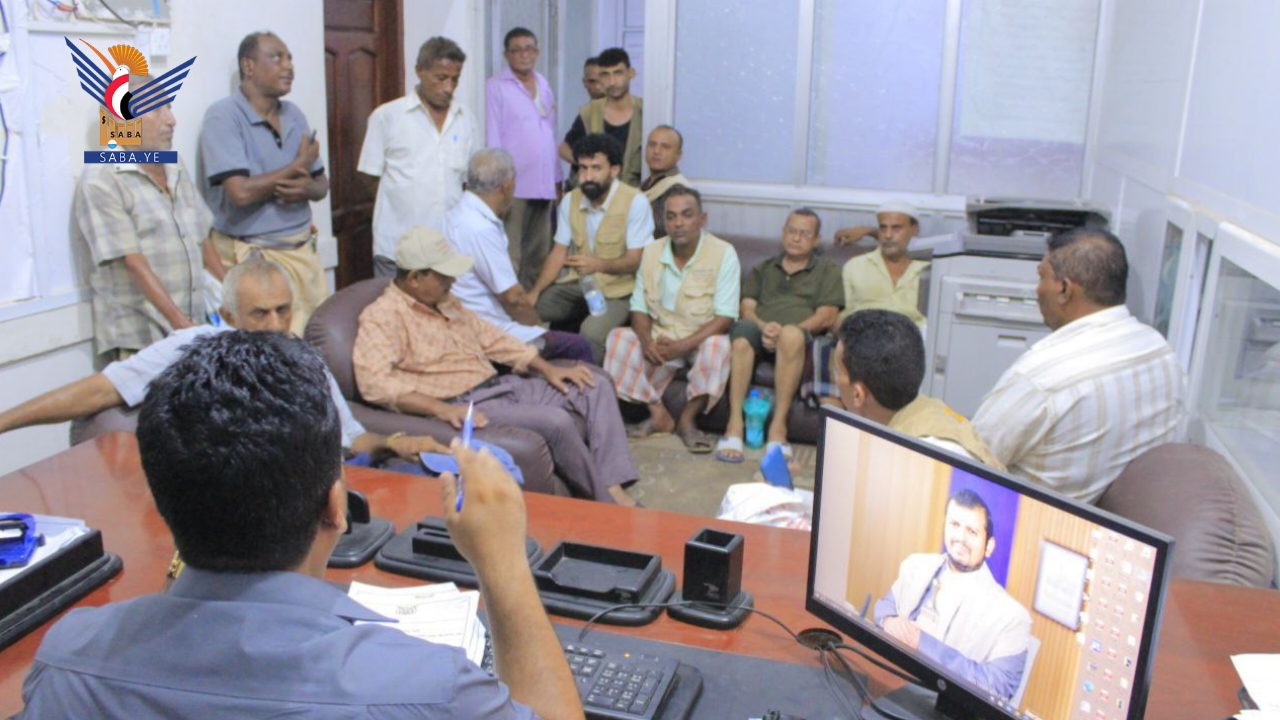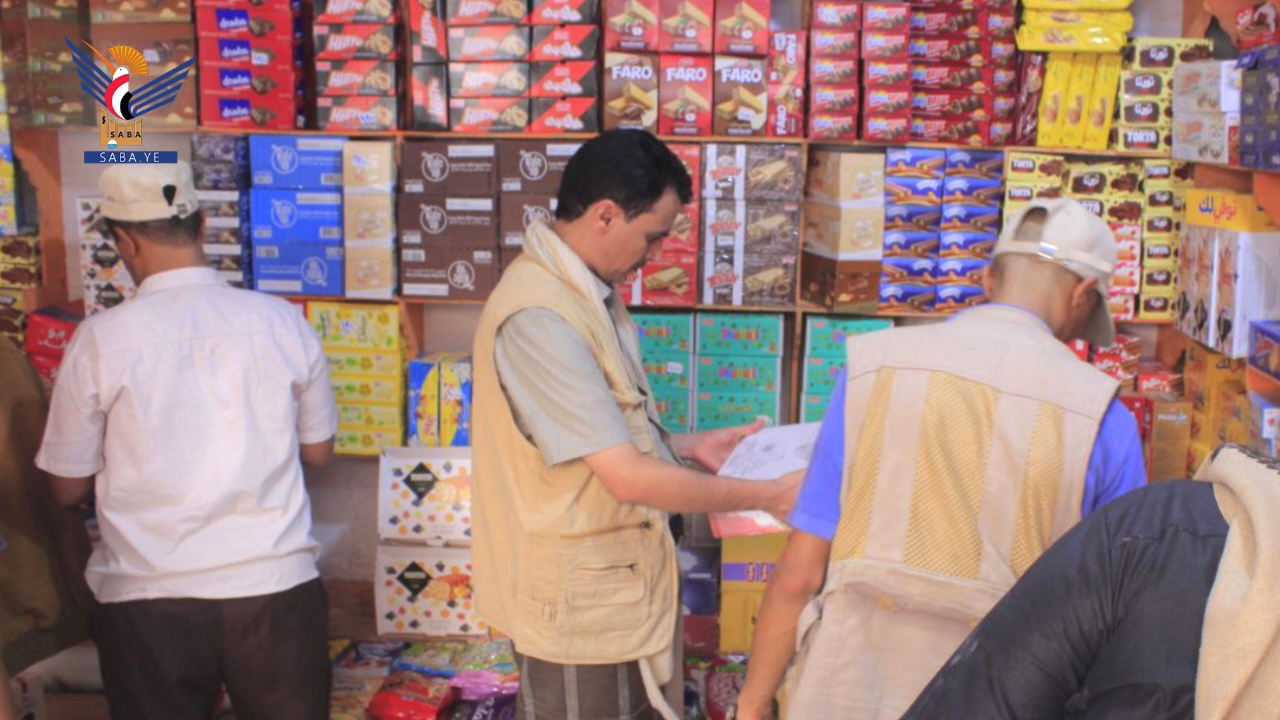
Hodeida - Saba:
The Office of Economy, Industry and Investment in Hodeidah Governorate achieved effective performance indicators in monitoring markets, controlling violations, activating work systems and mechanisms and improving the quality of services during the past year 2024 AD.
The efforts to improve work were evident in activities related to the success of dairy, mango and food industries localization projects, and adopting targeted programs to enhance partnership with factories and the private sector and the trend to support local products.
The field control campaigns in the governorate's markets, bakeries, ovens and sales centers resulted in the detection of 1,837 food violations, including the confiscation of expired materials within the framework of efforts to protect the consumer and take measures to maintain price stability.
A report issued by the office, a copy of which was received by the Yemeni News Agency (Saba), stated that the violations were distributed as follows: 254 violations of not displaying the price list, 318 violations of raising prices, five violations of not dealing with invoices, and 364 expired materials.
According to the report, 776 oven violations were detected, 15 violations of specifications, 21 violations of inspection committees’ refusal, six commercial fraud violations, 17 poor storage, 26 health requirement violations, 20 lack of a commercial register, and 15 other cases.
It stressed that legal measures were taken against all violations detected last year, during control and inspection campaigns on markets, bakeries, malls, warehouses and stores, to maintain market stability and protect consumers.
The report touched on the achievements made by the office in the success of the national strategy to localize the dairy industry and follow up and oblige manufacturing companies to absorb the quantities of milk supplied by the associations.
It stated that the efforts of coordination, monitoring and follow-up of the daily quantities supplied by the associations to national factories, as well as adopting a series of activities to support this strategy, resulted in an increase in the quantities produced and reaching 100 thousand liters.
It pointed to the success in localizing the mango industry by following up on the absorption of quantities of this natural product, indicating that the distribution of raw mango pulp to juice factories was launched with great efforts made by the leadership of the Ministry of Economy and Industry and its branch in Hodeidah in coordination with the local authority in the governorate.
Regarding the development of work systems, the report stated that the automated system and automation were introduced and activated in all departments and sections of the office, as well as the electronic window system that was launched last year to complete commercial documents and automatically issue commercial registration cards and facilitate the completion of transactions.
The report noted that the Industrial Control and Public Service departments were activated, which contributed to the speed of completing transactions, controlling imbalances and the qualitative transition in work mechanisms by updating field plans regarding the control of shops and bakeries and controlling violations.
Regarding business services and records, the report indicated that 238 commercial registration cards were issued during the year 2024 AD, 176 records were renewed, five company records, eight factory records were issued and 11 factory records were renewed.
The Director General of the Office, Saleh Mohammed, explained that the plan to develop work and control mechanisms for markets, bakeries, companies and factories focused on controlling violations and achieving price stability, activating aspects of coordination and follow-up for mills and silos, following up on the transfer of produced quantities to the governorates and creating a strategic reserve stock of wheat.
He stressed that the work plans and programs contributed to controlling and obligating producing and importing companies to the specified and approved prices for food products, as well as obligating ice factories to cooperate with citizens through direct distribution through sales centers and fixing their prices for distributors and retailers, in addition to fixing meat prices in coordination with the branch of the Slaughterhouses Corporation.
He pointed out that the office intends during this year to form sustainable partnerships between industrial establishments and local suppliers, and to contribute to the marketing process and raise awareness of the importance of using local products to localize the local product industry, and to secure fixed production inputs that work to regulate the production process.
The Director of the Economy Office pointed to the trend to enhance cooperation with the private sector to find innovative solutions to the challenges facing industry and trade, and to establish financial and technical support programs for small projects, and to organize promotional campaigns for local products and open new markets.
He appreciated the efforts of the leadership of the Ministry and the local authority in supporting the role of the office in the success of the campaign to boycott American and Israeli products, overcoming difficulties, implementing control campaigns, industrial and commercial activities, developing the institutional aspect, and providing the needs to improve work efficiency.









